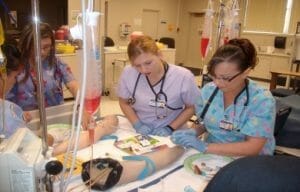
It is free as this is introductory course
Mode of training : Online
Dear Homoeopaths, Please register if you are interested
Medical doctors trained in the science of quantitative methods can become top professionals in clinical research and become investigators for trials. Some months ago, I mooted the idea of training for doctors in research methods to the Harvard School of Public Health and was pleased that they responded with the first ever Edx course in Clinical research which is online training in Quantitative Methods in Clinical and Public Health Research. Their goals is to enroll at least 2000 doctors /health professionals/ students interested in research for this introductory course which is free. The faculty is world class and have made a great contribution to global health. Please share this link with others who may be interested in clinical research.
How to register.
Please register for this course PH207x at the following address.
https://www.edx.org/courses/HarvardX/PH207x/2012_Fall/about
The Course Number is PH207x
Classes Start Oct 15, 2012
Classes End Jan 18, 2013
Estimated Effort 10 hours/week
About this course
Quantitative Methods in Clinical and Public Health Research is the online adaptation of material from the Harvard School of Public Health’s classes in epidemiology and biostatistics.Principled investigations to monitor and thus improve the health of individuals are firmly based on a sound understanding of modern quantitative methods. This involves the ability to discover patterns and extract knowledge from health data on a sample of individuals and then to infer, with measured uncertainty, the unobserved population characteristics. This course will address this need by covering the principles of biostatistics and epidemiology used for public health and clinical research. These include outcomes measurement, measures of associations between outcomes and their determinants, study design options, bias and confounding, probability and diagnostic tests, confidence intervals and hypothesis testing, power and sample size determinations, life tables and survival methods, regression methods (both, linear and logistic), and sample survey techniques. Students will analyze sample data sets to acquire knowledge of appropriate computer software. By the end of the course the successful student should have attained a sound understanding of these methods and a solid foundation for further study.
Prerequisites
Students should have a sound grasp of algebra.
Course staff
Earl Francis Cook
E. Francis Cook, ScD, is a Professor of Epidemiology at the Harvard School of Public Health (HSPH) and at the Harvard Medical School. In the past five years he has taught or directed more than 30 offerings of 8 different courses at HSPH. He developed and directs the Summer-Only Masters of Science (SM) in Epidemiology and the Summer-Only Masters of Public Health (Clinical Effectiveness) (MPH) Degree Programs at HSPH.
He has won Citations for Excellence in Teaching from the Harvard School of Public Health on four occasions, the Alumni Award of Merit from the Harvard School of Public Health for his teaching and mentoring, the Teaching Award from the Center of Clinical Investigation at the Brigham and Women’s Hospital, and is a member the American Schools of Public Health/Pfizer Public Health Academy of Distinguished Teachers.
Marcello Pagano
Professor Pagano obtained a Ph.D. from Johns Hopkins University and has spent the last 35 years on the faculty at the Harvard School Public Health teaching biostatistics and advising students. His research in biostatistics continues to be on compute intensive inference and surveillance methods that involve screening methodologies, with their associated laboratory tests, and in obtaining more accurate testing results that use existing technologies. The accuracy of these screening tests is important–for example to maintain the integrity of the nation’s blood supply–and it is doubly beneficial if these methods are also cheaper to implement; thus more testing can be done. This can mean a safer blood supply, for example. His interests extend to the quantitative aspects of Monitoring and Evaluation, especially as they are applied in resource poor settings, and are brought to bear to improve the quality of health services to all.
How to register for the Edx Course PH207x/2012
Please hurry and register for the course click on the link. Registration is fast and it’s free!
https://www.edx.org/courses/HarvardX/PH207x/2012_Fall/about

Sir
I want to do the course but date is over can i do the corse now pls give me infomation as soon as possible
Thanks
Dr Tarakanta Patra
Email-drtarakanta2012@gmail.com
I missed the course but would like to review the video lectures and notes. Is there a place I can go to to view these ??
Dear Dr.Mansoor,
Thank you so much for putting up the information about this course. It is because of this that I came to know about this course and registered for this. I could complete this successfully and also get a certificate.It helped me improve my knowledge about quantitative research methodologies and epidemiology. Thank you for taking the time and effort in making such a comprehensive and informative site.
Dr.Rajalakshmi
dear sir,
do we get the certificate.regarding this
kindly reply.
As i came acros this site very late please detail about the course and next comence